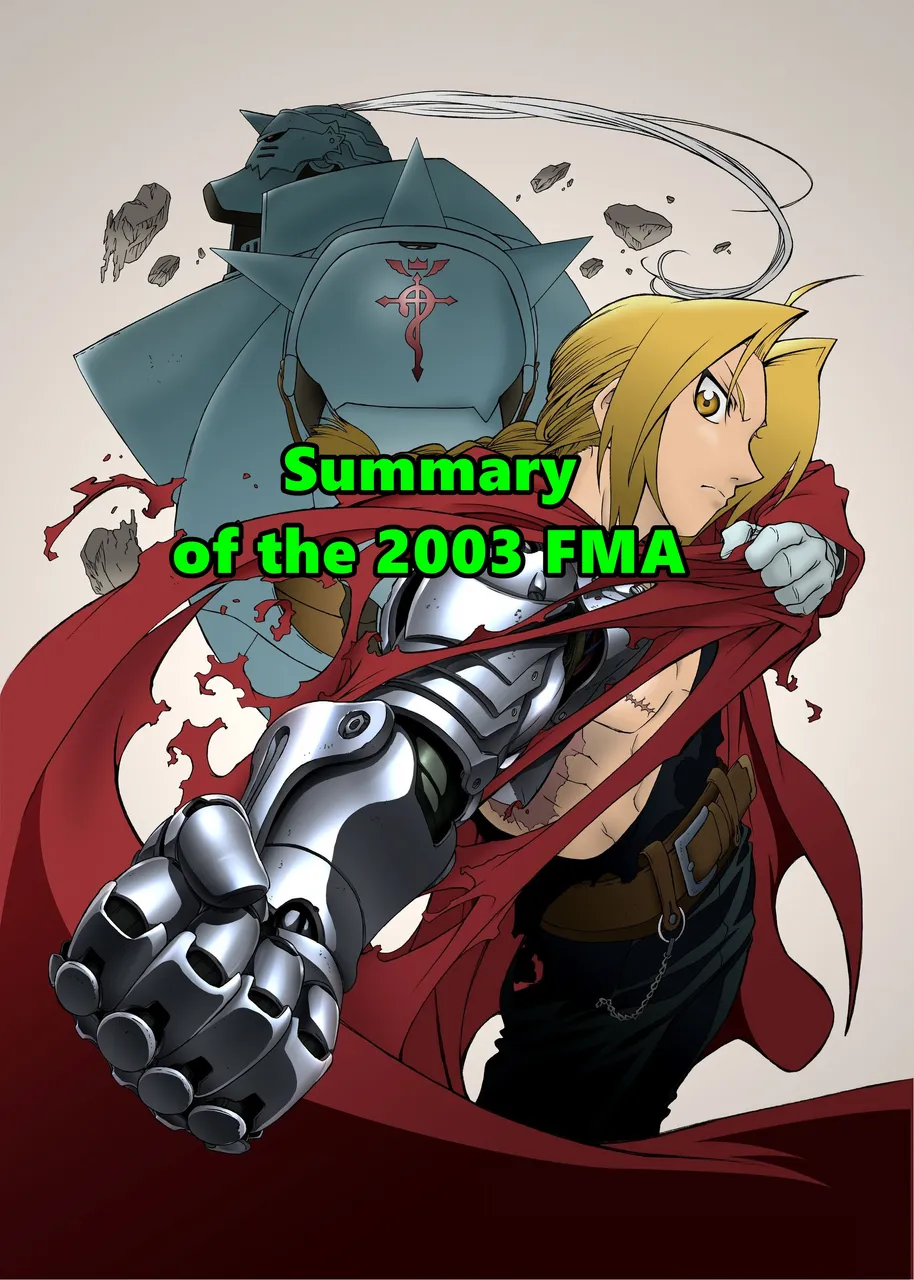
This entry will be chaotic. Originally there was supposed to be one more coverage, and the one you're reading now wasn't supposed to cover the last 12 episodes. However, as I wrote recently on my blog, the FMA ending was so good that I decided on Sunday to ignore the rest of the series or movies and focused solely on finishing this anime. Developing the first sentence, I didn't prepare the points beforehand, and I also have too much material, so I'm sure to miss something that I originally wanted to comment on or cover up insufficiently satisfactorily. If it was something important, please let me know, I will include it in the next text, which I will write with Karol this time.
I finally understood the words of the people saying that the ending and message of the entire first series in its context is darker. Why do I find them better? First of all, because it suits our lives better. Our world is governed by very simple mechanisms and if we wanted to describe it in simple sentences, it could be done. Or to put it another way - if we all followed these principles, we would not be guided by sins, the willingness to combine to improve our position, and we would adhere to one truth, then it would be so. Unfortunately, the world is too often cruel, ungrateful, unfair, everyone starts from a different position, grows up in different conditions, which largely determines our personality and the way to achieve the goal. This goal is our subjective well-being and satisfaction. For it to be good, we must either work hard for it or be very lucky - to the people we meet on our way, the experiences we will meet, the availability of resources on the basis of which we will build a satisfying life.
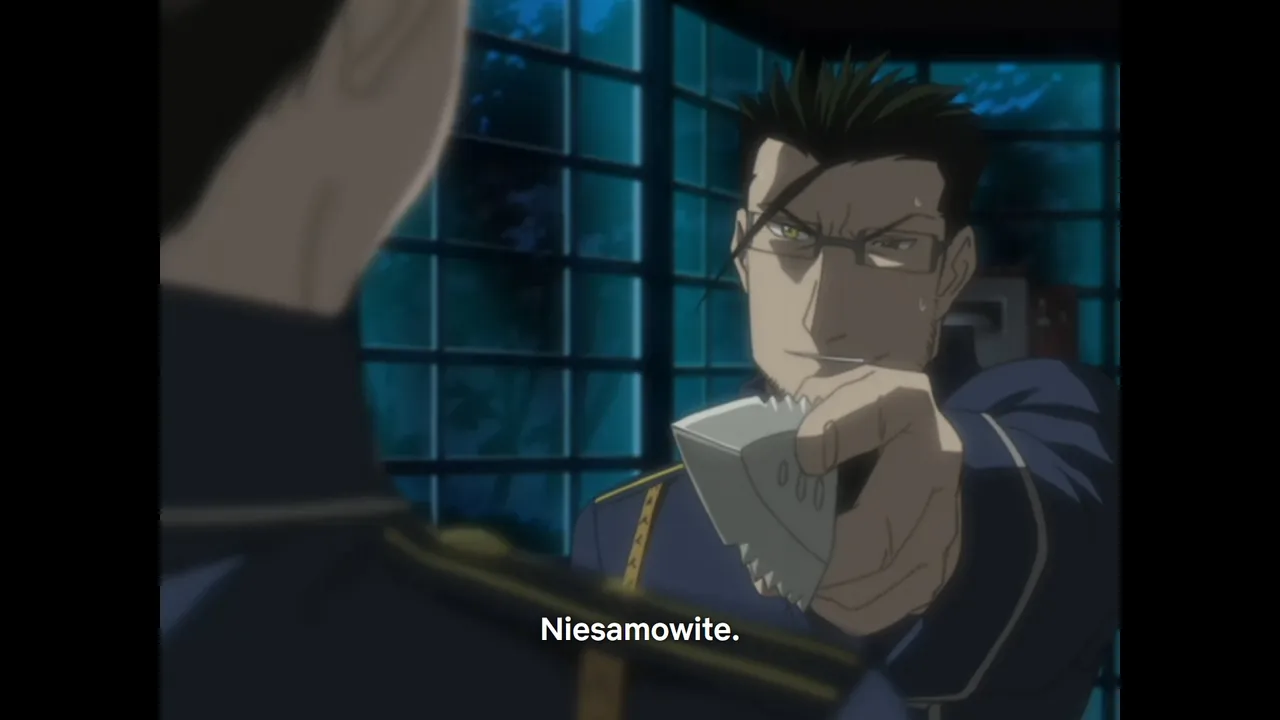
The original series shows much better that our choices sometimes lead to a dead end or it is difficult to deviate from the path we have already taken. On the other hand, it also shows how much depends on ourselves and that our decisions can sometimes have catastrophic or unexpectedly positive effects, against our intentions. Returning to the previous thought - perhaps you know my views on all religions and my critical attitude towards some Catholics or the principles of this religion. Despite my reluctance, the longer I live in the world, the more I am inclined to think that Catholicism is closest to the Truth. But does this mean that this is the only way to know the Truth, to be happy, or to know the answers to the questions that bother us about the world or ourselves? No. Brotherhood insists that there is one correct path, maybe several, as long as the Xing culture is different from that of the citizens of Amestris. The original series shows that there are even more methods to achieve these things, and it is difficult to deny the validity of this line of thought. It is similar in our life - there is no one Truth, one way to the goal, and the methods are various. You can combine them almost freely, use your own methodology. The world offers a wide range of ways to achieve the goal, which depend on our capabilities, determination, broadly understood strengths and ourselves. It seems that everything is simple and understandable, but due to our selfish whims, a tendency to close ourselves in our own information bubbles, insatiable hunger in the broad sense, sometimes ignoring the objective reality, we make it difficult for us to understand it. The world does not give simple answers and you have to find your own way, having a choice of several hundred of them. This is especially apparent to me in the context of the world beyond the gate, in which humanity has taken a completely different direction. In addition, plots and finals of some characters reminded me of one quote from Albert Einstein - "A man can do what he wants, but he cannot want what he wants." I mainly mean Tucker, Brother Scar and Lust.
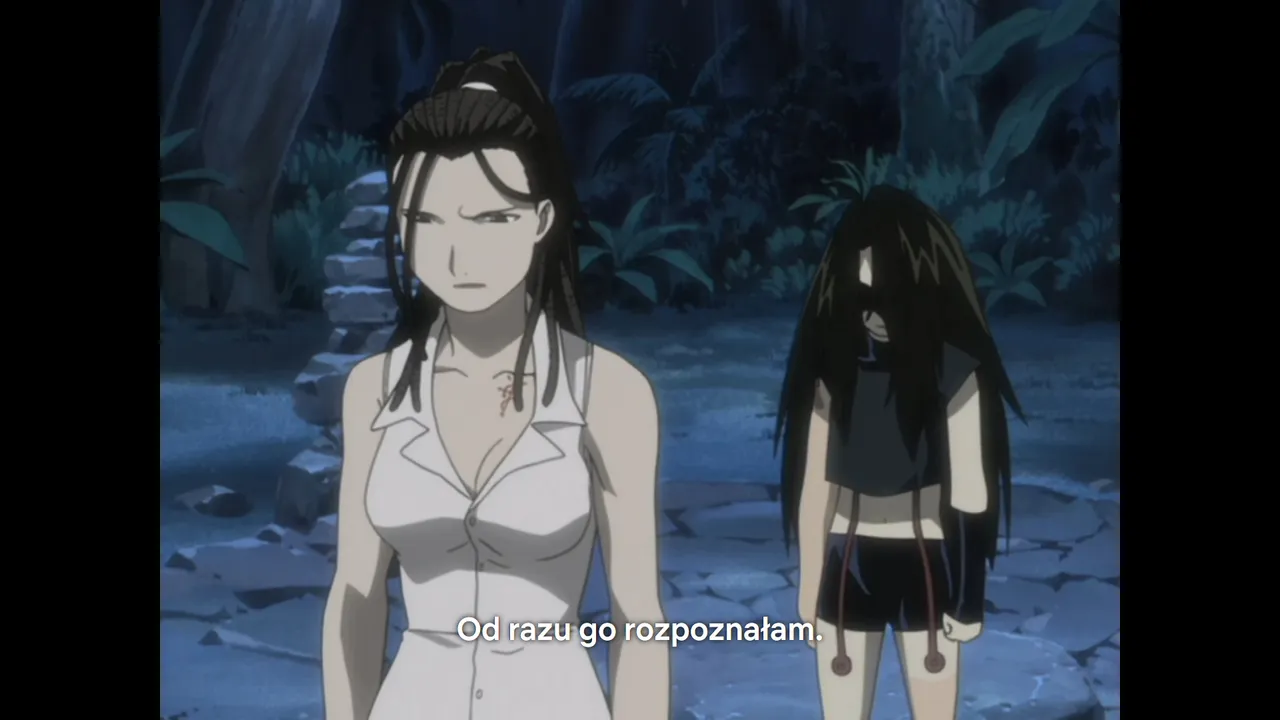
Which final do I prefer? It depends, because both series have cool and not cool things. If I were to describe my conclusions in one sentence, I would quote my friend Przemek: "The ending in Brotherhood is better, but more banal." Although in some respects Brotherhood fares better (mainly technical - fights, dash, music), as a whole I prefer the first FMA. In the first series, I mostly didn't like the Scar finale, I think its story ended poorly. The scene of the human transmutation into the Philosopher's Stone was great, but otherwise I was disappointed. The fight between Wrath and Ishval's avenger was incomparably better and stronger than Mustang vs Pride. Same with the rest of the fights, but I don't pick on that, because that's not what I expected from this series. I also like the fact that we were given more time to finish threads. In the old series, at least one episode was missing, in which we would see the consequences of solving the Homunculi case, the fate of the heroes and the behind-the-scenes activities of the army. Yes, I know there is a movie called Conqueror of Shamballa, but the series should be completely on its own feet. I also like the moral of the story. As Przemek said, it is not so banal, but more vital, showing that despite the will, hard work and sacrifice, it is not always possible to get a satisfactory ending. Sometimes life ends with a bitter taste of failure or a half-hearted, unsatisfactory success. For the second series, we get a polite ending that is more suited to OP, "Naruto" or DBZ, where everyone gets what they deserve. Life doesn't work that way, unfortunately. On the plus side for the old series I also write down the main enemy - Dante, her motivation and relationship with Hohenheim is in my opinion more interesting than Homunculus in a bottle and his relationship with the father of the Elric brothers.
And now I invite you to what I wrote before watching the finale.
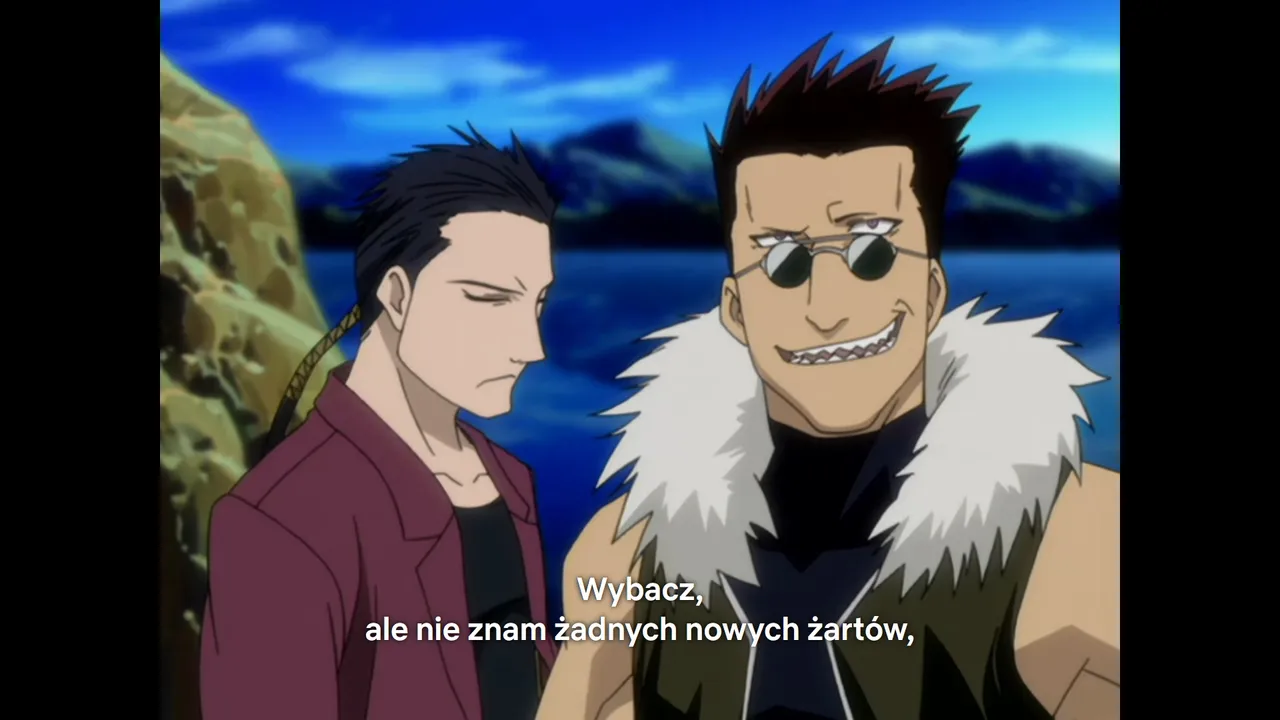
With each episode, I like the old FMA more and more. I still think that the fights are weaker, less dynamic, with worse choreography, I also like the line less, but I perceive it as not very important details. From the fights I have a second series or other shounen, here I am primarily interested in the scenario. Gradually I am also convinced that the first series can actually have a darker message than Brotherhood. So far, the best example of this, in my opinion, are the Homunculi, and more specifically - their genesis and character. The latter applies primarily to Lust and to a lesser extent to Wrath.
Maybe this is a bit of an exaggerated comparison, but while writing this text I associated it with my conversations with Karol about the book "The Witcher" and the third parts of the game. I mean specifically that on paper they have the same features, they are practically no different from their manga version, but they are presented differently. Wrath differs significantly from its predecessor, not only in the character itself, but also in the depiction of Wrath. However, in the case of Lust, I feel like comparing Geralt of "Wild Hunt" to his book version. Wrath in series 1 is Anger resulting from grief, terror. I don't know if this will change in the next episodes or if the creators will show something that will change my perception, but the boy looks like a good person in fact, but through his experiences he is not able to react other than with anger. I also liked the relationship between him and the Elric brothers. I don't mean that the blondes want Edward's hand back, but the bond of friendship. They get along well, there are genuinely funny scenes between them, it felt like they had a common mother and they grew up as a child in the same yard. I can't wait to see the end of this thread.
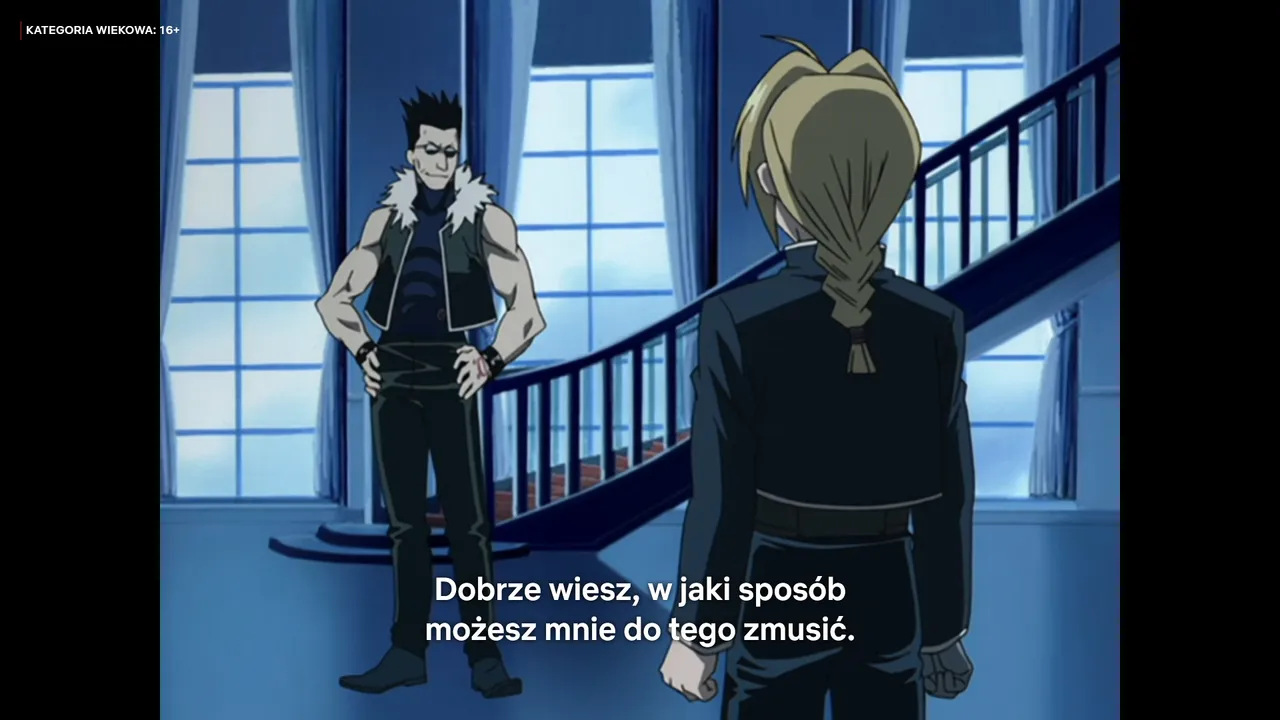
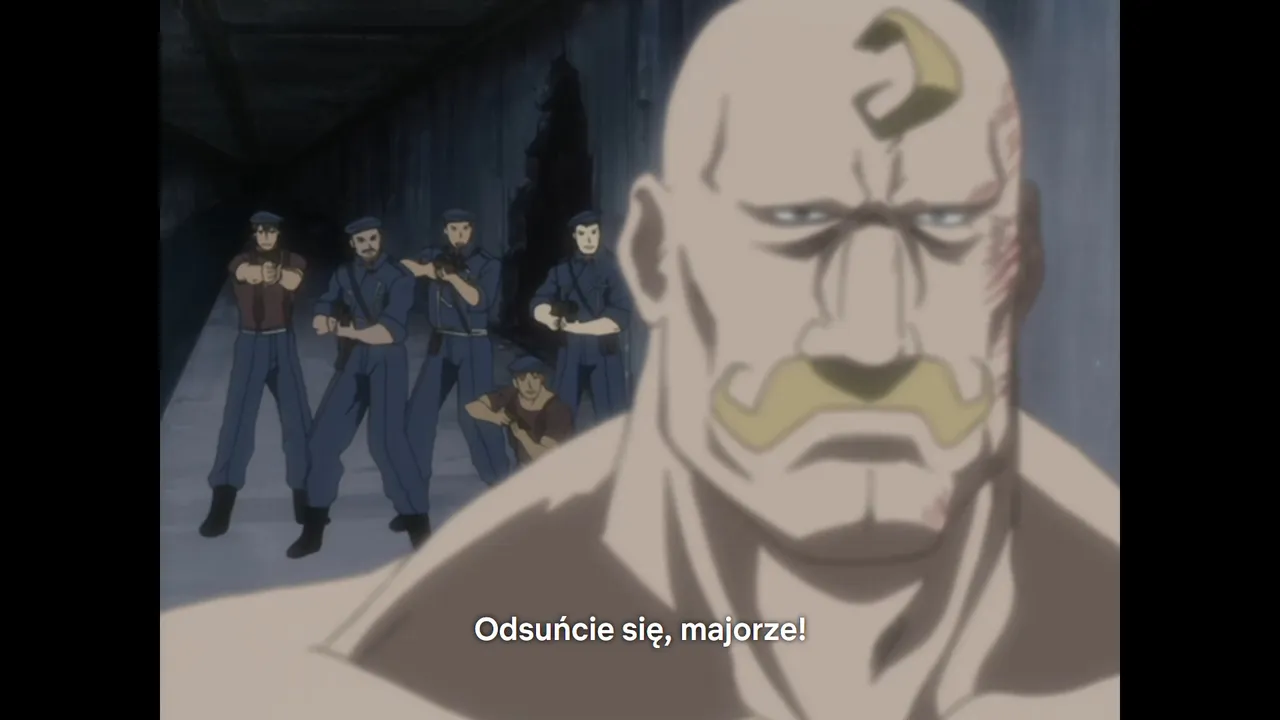
Wrath in Brotherhood is pure destruction where King Bradley doesn't have to limit himself, it literally rams everything in its path. It performs methodical destruction, attacks sharply and violently. Although there is a similarity here as well - Wrath from 2 series is not a completely bad character and, like the boy, has his good half. They are also characterized by the fact that they act like this for reasons which are independent of each other. The boy because of his experiences, and Bradley because of his function. In the case of the temptress, this is mainly due to the filler episode in which she visits one of the alchemists. Sure, she had shown her name traits before, too, but in Brotherhood it was better. More often she provoked with her strengths, which immediately catch the eye of most heterosexual men. Her voice actress was also better at voice-acting, but this episode made me look at her differently. Like any femme fatale, she made a man fall in love with her and made him dance as she wished. I didn't like this version as much, but it is not much inferior to its counterpart from the Brotherhood series.
The case of the Homunculi genesis is different. Karol put it very well - "the genesis of the Homunculi from the 1st series fits better the definition of sin than the Brotherhood. Before I got to the episode where it was explained, I didn't understand his words, but once I watched it, I couldn't disagree with that statement. The making of the Captain America-style Homunculi was fun, and I like that pattern, but the anime writer's idea was more suited to the story Arakawa was creating. I prefer Mrs. Hiromu's story version as a whole, but the first attempt at adaptation has a few things that could make the title even better.
After that, it's time to complain a bit. As much as I praised the story with Greed so far, I didn't like its ending. The fact, consistent with what was shown in the manga and Brotherhood (again back to the "The Witcher" comparison), remained the essence of Greed's sin until the very end, but the last fight didn't appeal to me. Mainly due to technical aspects, Greed looks like a Chinese counterfeit of a licensed toy in its super form. Besides, it happened too quickly and the developers got rid of it in a hurry. If this thread was a bit longer, it could make a stronger impression. His dedication from the second series struck me much more and I felt then an authentic, uncontrolled emotion and sadness that I missed here. However, maybe only I think so. Dante's story is different. You can feel its power and dignity, which is additionally emphasized by a great musical theme. It's a pity she dropped out of the anime so quickly because I liked her character a lot and her theme is pure epic. Coming back to Greed for a moment, I liked the plot with his chimeras and Kimblee very much. More than in Brotherhood? Probably not, but it does not give way in a noticeable way.
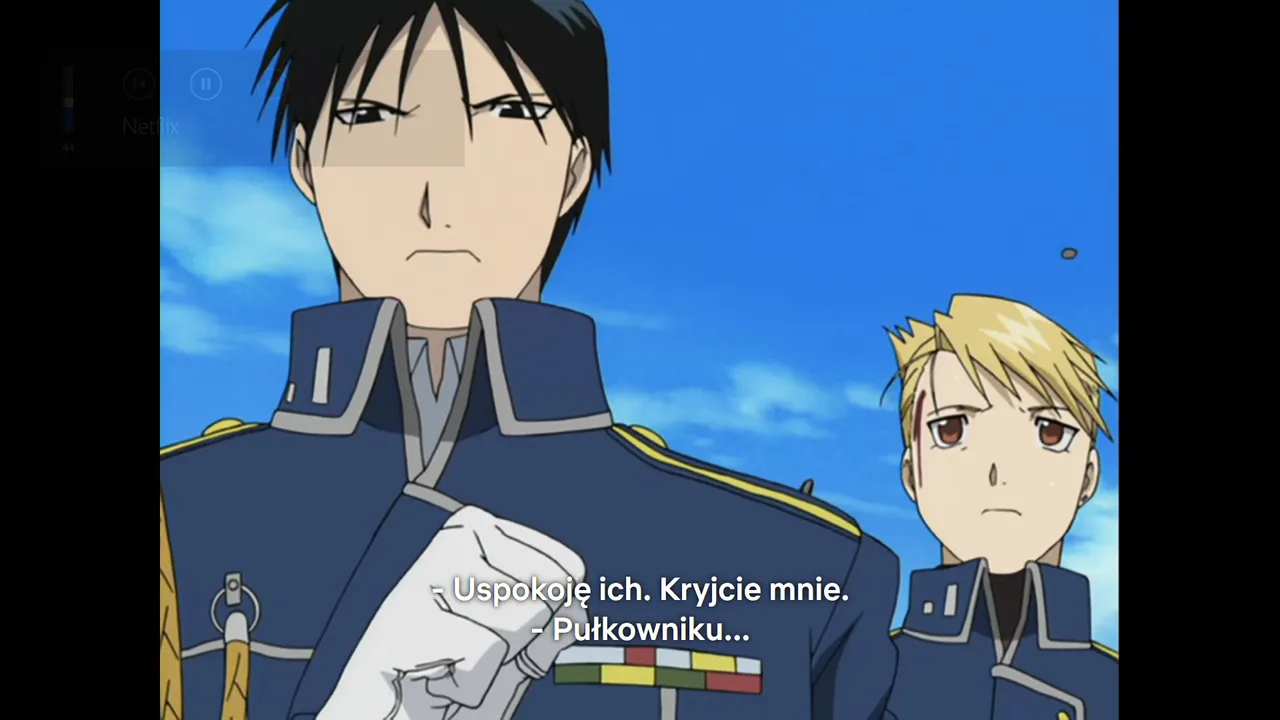
The plot with Archer was also very cool, and if I hadn't watched a series based on the manga before, I wouldn't have believed it to be a filler. Even his Two-Face version is great!
Forgive me for the chaos, slight selectivity, I will try to better present my opinion on both series in a joint text with Karol.